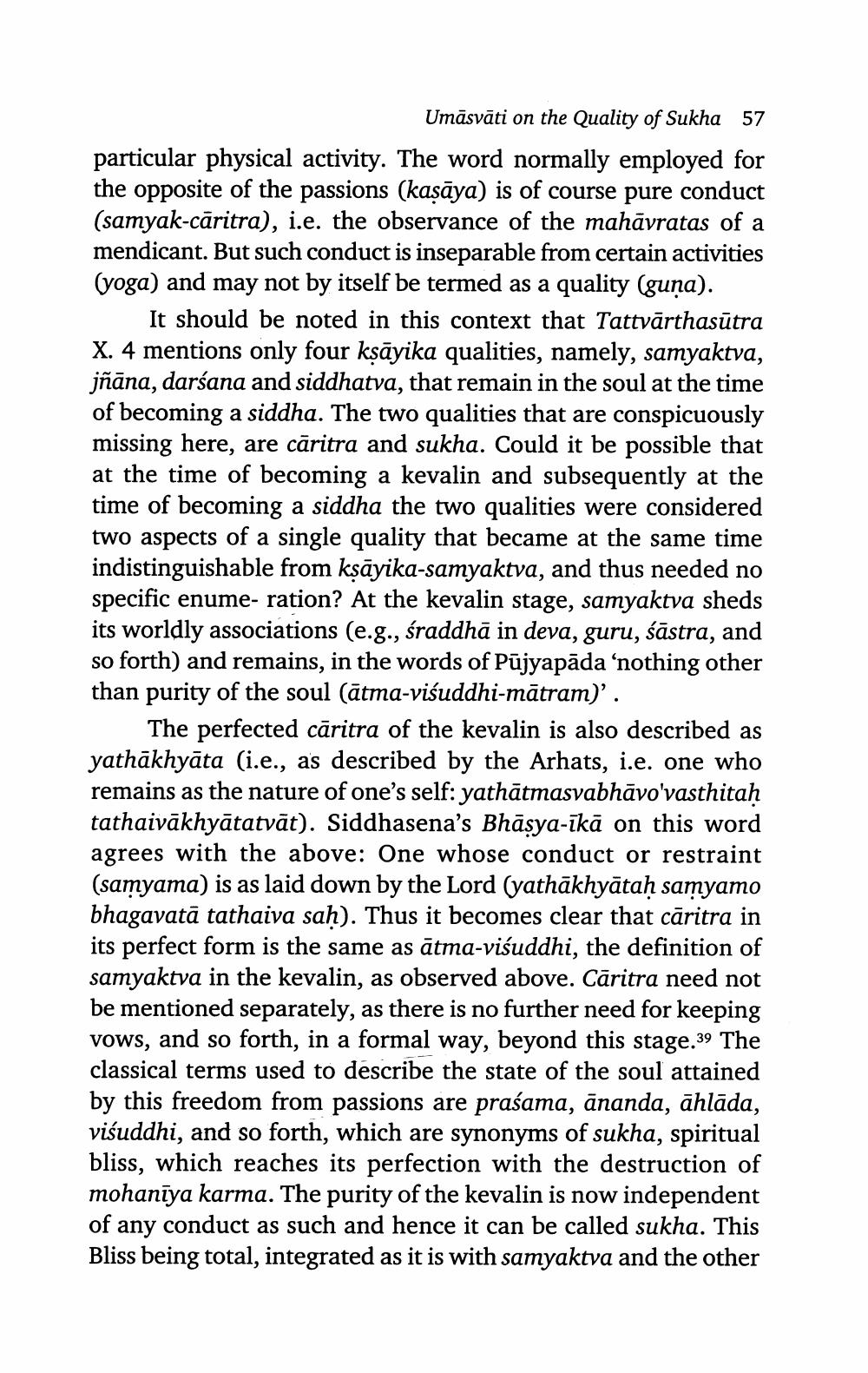________________
Umāsvāti on the Quality of Sukha 57 particular physical activity. The word normally employed for the opposite of the passions (kasāya) is of course pure conduct (samyak-cāritra), i.e. the observance of the mahāvratas of a mendicant. But such conduct is inseparable from certain activities (yoga) and may not by itself be termed as a quality (guna).
It should be noted in this context that Tattvārthasūtra X. 4 mentions only four kṣāyika qualities, namely, samyaktva, jñāna, darśana and siddhatva, that remain in the soul at the time of becoming a siddha. The two qualities that are conspicuously missing here, are cāritra and sukha. Could it be possible that at the time of becoming a kevalin and subsequently at the time of becoming a siddha the two qualities were considered two aspects of a single quality that became at the same time indistinguishable from ksāyika-samyaktva, and thus needed no specific enume- ration? At the kevalin stage, samyaktva sheds its worldly associations (e.g., śraddhā in deva, guru, śāstra, and so forth) and remains, in the words of Pūjyapāda ‘nothing other than purity of the soul (ātma-visuddhi-mātram)'.
The perfected caritra of the kevalin is also described as yathākhyāta (i.e., as described by the Arhats, i.e. one who remains as the nature of one's self: yathātmasvabhāvo'vasthitah tathaivākhyātatvāt). Siddhasena's Bhāsya-ikā on this word agrees with the above: One whose conduct or restraint (samyama) is as laid down by the Lord (yathākhyātaḥ samyamo bhagavatā tathaiva sah). Thus it becomes clear that caritra in its perfect form is the same as ātma-visuddhi, the definition of samyaktva in the kevalin, as observed above. Căritra need not be mentioned separately, as there is no further need for keeping vows, and so forth, in a formal way, beyond this stage.39 The classical terms used to describe the state of the soul attained by this freedom from passions are praśama, ānanda, āhlāda, viśuddhi, and so forth, which are synonyms of sukha, spiritual bliss, which reaches its perfection with the destruction of mohanīya karma. The purity of the kevalin is now independent of any conduct as such and hence it can be called sukha. This Bliss being total, integrated as it is with samyaktva and the other




